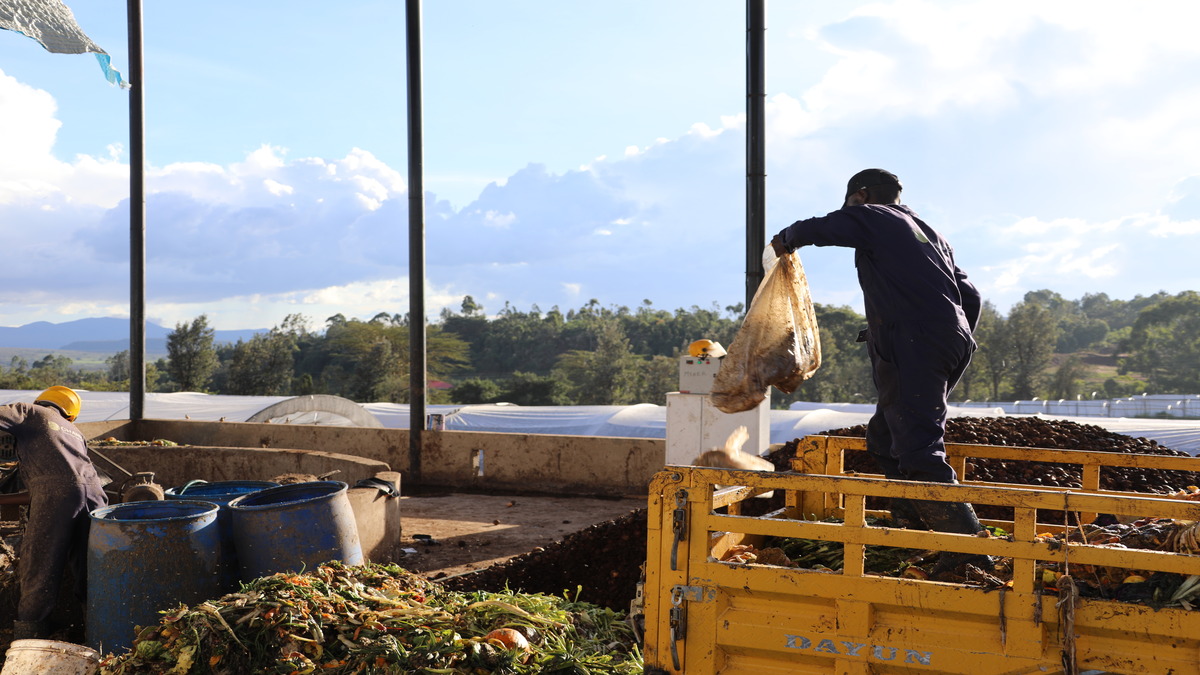Organic waste from plants, animals, households and manufacturing are a major contributor to environmental pollution, particularly affecting water systems and human health. Sustainable management of organic waste requires global access to technologies, services, and expertise, which trade can facilitate by enabling the exchange of innovative solutions across borders.
At the same time, regional adoption of incentives is key to fostering the uptake of these technologies. By aligning trade policies with incentive frameworks, governments can encourage industries to adopt sustainable waste management practices, including helping to create markets for value-added products derived from organic waste. This approach strengthens the regional and international transfer of knowledge and solutions, making trade a crucial driver for scaling up circularity in the organic materials.
At the Waste is Wealth Conference 2024 on ‘Accelerating Sustainable Initiatives for a Greener Future,’ UNCTAD will lead a session entitled "Thinking outside the sink: Driving sustainable pollution-control strategies through trade", exploring how trade and regional incentives can drive the adoption of technologies and services for sustainable organic waste management and value addition. This session will showcase best practices, with concrete examples from the Sustainable Manufacturing and Environmental Pollution (SMEP) programme highlight international cooperation and provide practical solutions to common challenges.
This event aims to explore the role of trade and regional incentives in promoting circularity in various organic cycles in East Africa, , addressing gaps in inputs and markets, enhancing South-South collaboration, and encouraging policy development and environmental compliance.
Outcome
The expected outcome of this event is an enhanced understanding of the main barriers to trade in technology, services, and knowledge, and how they could be overcome to prevent and mitigate organic (and other) waste from leaking into the environment, especially water systems. Participants will gain insights into effective waste solutions and technologies and collaborative approaches already in place in East Africa that contribute to the achievement of SDGs 6, 9, 12, 14 and 15 as well as the fulfilment of other relevant multilateral environmental agreements (MEAs).
The Waste is Wealth Conference is co-organised by TakaTaka Ni Mali (TTNM), ALN Kenya, FlipFlopi and East African Business Council (EABC), in collaboration with the SMEP Programme, funded by UK-FCDO and implemented in partnership with UNCTAD.
Programme
Session Theme: How access to goods and services can accelerate adoption of technologies and circular practices to reduce and eliminate plastics and organic waste from water systems?
Moderator: Dr. Henrique Pacini, Economic Affairs Officer, UN Trade and Development (UNCTAD)
Keynote: Mr. Alfred Ombudo K’Ombudo, Principal Secretary, Trade, Government of Kenya
Panelists:
• Honourable Françoise Uwumukiza, Chairperson, Committee on Agriculture, Tourism and Natural Resources, East African Legislative Assembly: Parliamentary perspectives on the importance of making waste into wealth
• Ms. Eva Muhia, Commissioner, Nairobi Rivers Commission: Applying circularity to organic residues and water use
• Dr. Jane Nyakang’o, Chief Executive Officer, Kenya National Cleaner Production Centre (KNCPC): Facilitating access to innovative solutions to liquid organic waste from industries and accelerating technology uptake
• Mr. James Boyd-Moss, Founder, Mananasi Fibre - Realities of the implementation and financing of ‘waste’ upgrading
• Ms. Anita Siro, Environment and Biodiversity Officer, British High Commission: Supporting circularity of organic waste in East Africa

